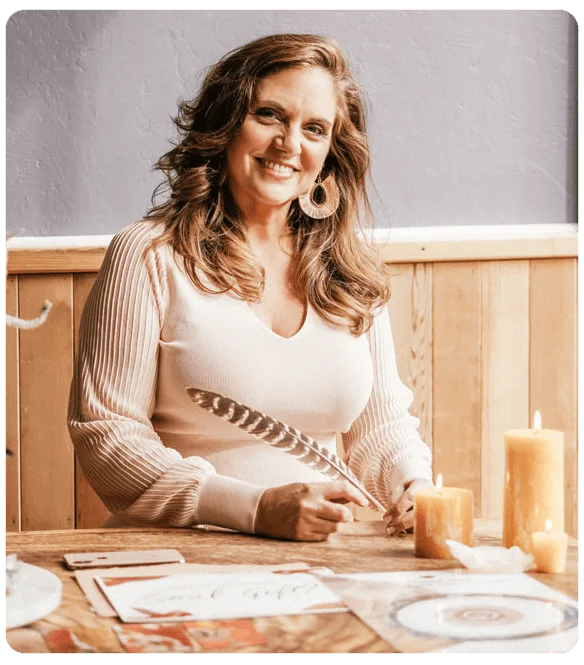
Were you raised with some guilt? Do you still have some guilt left over? my gosh. Well, I am a Catholic from way back. And guilt is something that has followed me like a sticky business for my whole life. And I learned something that gets to the heart of guilt and unwrap was the part of guilt that we don’t need really swiftly.
And I want to share that with you. The distinction is the distinction between guilt and shame. So what if guilt is you or me feeling bad because I’ve broken someone else’s rule, I’ve broken someone else’s rule and I might get in trouble. So I feel guilty. I shrink. I. I kind of hide. I look around. I feel guilty.
I wonder who’s going to get me in trouble. What will the punishment be? That’s guilt. Shame is different. Shame, perhaps, is when I’ve broken one of my own rules. I’ve gone against one of my own dearest values. And shame feels like a disquieting urge to shift something. It’s. It’s an uncomfortable verbal feeling of oof! And, well, I know that sometimes we hold shame for too long.
We’re too brutal with ourselves. We put too much shame on ourselves. And that’s a problem. But what if instead of feeling the shame and then redoubling the shame and feeling more horrible, I ask myself, What’s my own rule that I’ve broken? What is the value that I’ve crossed? But I didn’t want to cross? And if I find out that it’s actually somebody else’s rule, then I can recharacterize that feeling as guilt.
Okay, so let’s say you have a feeling and you’re like, okay, I kind of feel guilty. Or is it shame? I just feel creepy and bad. Ask yourself, whose rule did I break? Did I break someone’s rule? Did I break a rule? Am I worried about being punished for breaking a rule right now? Because that’s guilt. And then I can ask myself, whose rule is it?
What rule did I break? And do I still even believe in this rule? Do I want to follow this rule? Is this actually one of my dearest values? 95% of the time it’s somebody else’s rule. It was my dad’s rule. It was my mom’s rule. It was the school’s rule. It was some rule that culture laid on me that I actually don’t even believe in anymore.
And when I recognize that I can stop feeling guilty and I can claim my own value, my own rule, what if I feel into it and I realize, no, I feel ashamed because I broke one of my own rules, like I lied to someone I care about and I am for honesty. Or I said something nasty about somebody out of spite.
And I am actually against saying nasty things out of spite. Then it might be shame, but if it’s a I got up from the table without asking permission, I feel guilty. Do I even believe in that rule anymore? Do you see what I’m saying? So this is the difference between guilt and shame. And in this you get to choose what’s your value?
And what are the old rules that you’re ready to set aside? This is your choice. Your choice. And this month is all about choice. Refining and defining what you choose. The rules that you think are true. Because back when you were a kid, you were initiated into making your own decisions. Hopefully, you were given the chance to make your own choices.
With many things. About the time you were seven, eight years old, even five, you could make a lot of decisions, whereas before adults really had to make most of the decisions for you. When you reach a certain age, even in childhood, you can choose. The problem is a lot of us were not guided through that life passage very gracefully.
Many of us were indoctrinated with a lot of rules. Do it because I said so. Follow the rule my way or the highway. And as a kid, if you were indoctrinated with all those rules and kind of subconsciously kept them around because they were all you knew and you weren’t really supported to choose on your own then, even now, breaking all these myriad of rules that are often conflicting, by the way, rules, so you’re bound to break them, brings you guilt.
So I’m hoping that this tool of unpacking the difference between guilt and shame can support you like it’s supported me. Thank you to my teachers in knowing the difference between your own discernment and choice of what you value and the rules that you hold for yourself versus the old stuff. Embedded patterns that were placed upon you that your adult self, your wise self doesn’t even agree with.
You can let those go. You can let those go because you are the chooser.

Mellissa was a Stanford-educated business lawyer until her intuitive abilities awakened in the year 2000 with the birth of her daughter. Now she bridges the worlds of business strategy and intuitive intelligence. Creative designers, Fortune 500 executives, and thought leaders hire her to teach them how to Channel their Genius – to create on demand, to stay in their flow state, and to create lucrative businesses that follow their souls’ calling.